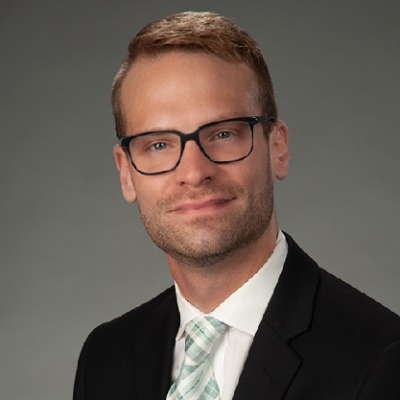Political Science
Michael Williams '13

Employer
US Centers for Disease Control and Prevention / Public Health
Analyst (Policy)
LinkedIn Profile
https://www.linkedin.com/in/michaeldwilliams11/
1. Tell us about your journey since graduation.
Since I left Grand Valley in the Spring of 2013, I have been
honored to work at the US Centers for Disease Control and Prevention
(CDC). And in my near decade of government service, my commitment and
desire to be a public servant has not waned even one degree. From
working with diverse constituencies to tackle infectious disease
emergencies in West Virginia to engaging elected and non-elected state
leaders to identify policy solutions to eliminate health disparities,
my tenure at CDC has been more rewarding than I could have ever
imagined. I also earned a Master of Public Health and owe my success
in graduate school to all the faculty and staff at Grand Valley who
prepared all of us to become lifelong learners.
2. Share a favorite Grand Valley memory.
I absolutely loved being a campus tour guide. Nothing beats
seeing moms, dads, and/or other family members go from "anxious
and worried to send their child off to school" to
"comfortable and excited to see their child assimilate into this
amazing campus community." I am thankful to have been part of
many of those moments. And, special shoutout to 2011 - 2012 Ott Living
Center residents and the WHOJR staff!
3. What's the best piece of advice you've ever received?
"If you want to identify a problem, you should come prepared
to discuss its solution."
4. List three words you would use to describe your Grand
Valley experience.
Maturing, Challenging, Papa Johns
5. What difference would you like to make in the world?
Because law and policy can drastically impact the health,
wellbeing, safety, etc. of individuals and whole communities,
democratically elected leaders have an awesome opportunity to improve
the lives of the constituents they serve. Using sound scientific
methods, we can assess how law/policy impacts where and when disease
spreads as well as who and ultimately why people get sick. These data
and outcomes can be communicated to lawmakers so science-informed
policy decisions can be deliberated, enacted, and implemented. I hope
to assist in establishing this practice as a routine part of
policymaking and equip public health agencies to provide this sort of
technical assistance when called upon by their elected leaders.
Science-informed policy saves lives, saves money, eliminates health
disparities, and protects youth.
January 2022
Interest Area(s)
Public Administration, Political Science, Statistics
Share this spotlight
This spotlight was originally posted to the Alumni website.
Return to the listing of political science.
